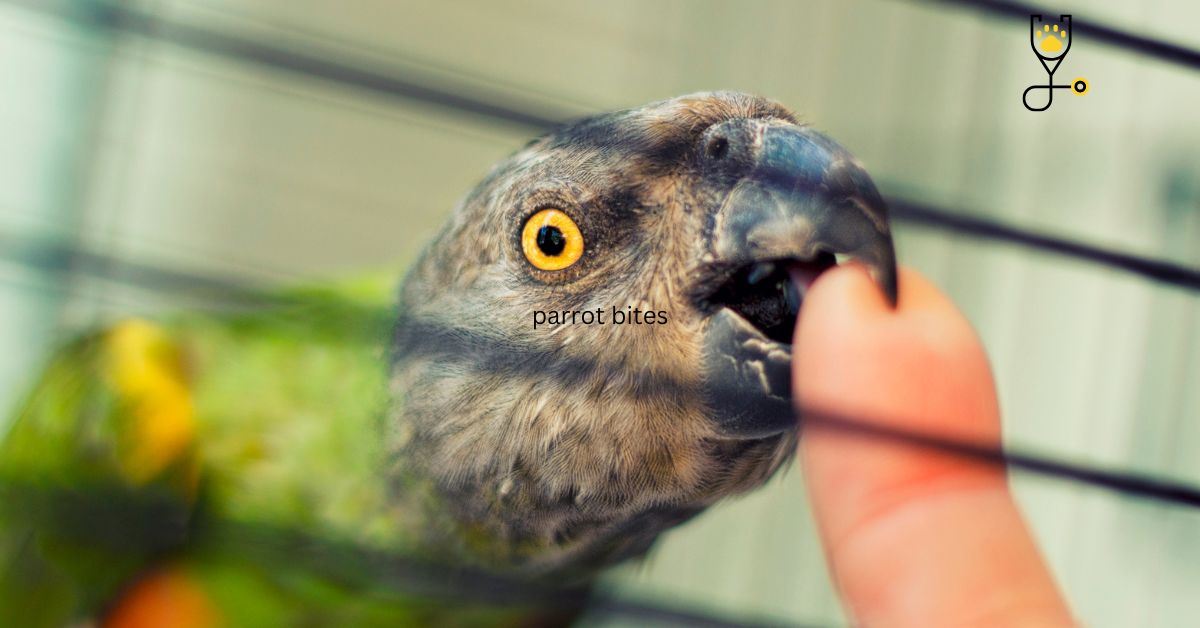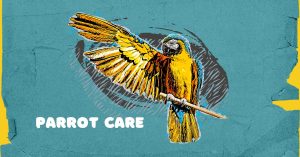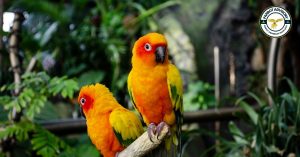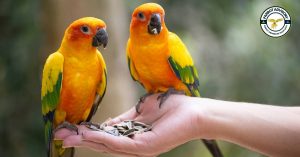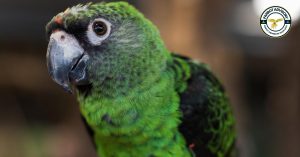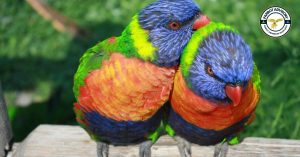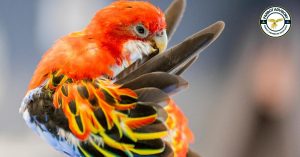Do you ever find yourself at a loss over your parrot’s biting habit? Is it taking a toll on your relationship and draining the fun out of owning a bird? Don’t worry–you’re not alone. This age-old problem is painfully common among parrot owners, but there are resources available to help stop the cycle of unwanted behavior. In this blog post, we’ll explore some effective tips to break the habit and foster a healthier bond between you and your feathered friend!
Why does my parrot bites?
It’s important to understand that parrots bite for a variety of reasons. Many times, it is simply an instinctive behavior; birds in the wild often use their beaks and feet as a defense mechanism against potential danger. Parrots kept as pets can also resort to biting out of boredom or frustration when they don’t feel properly stimulated. If you notice your parrot lunging at you or other people in the house, it could be because he feels threatened by something—even if it seems harmless from your perspective!
Ways to Stop Your Parrot From Biting
The good news is that there are several effective strategies you can employ to quell any aggressive tendencies in your bird. Here are five of the best ways to stop your parrot from biting:
1. Show Your Parrot Love and Attention
This might sound obvious, but it’s important to remember that your parrot needs regular human contact in order to feel secure. Spend time with her every day, and make sure she knows you care by providing plenty of praise, treats, and physical affection when she behaves properly. Establishing a strong bond can go a long way toward diffusing any negative feelings your bird may have.
2. Provide Your Parrot With Stimulating Environments
Parrots can be quite destructive if they don’t have enough mental stimulation at home. Make sure you provide plenty of toys for her to play with, as well as interesting branches and perches to explore. You can even hide food around the house to encourage her to seek it out and exercise her natural foraging instincts!
3. Provide an Outlet For Aggression
If your parrot is biting, it could be because she doesn’t have a healthy outlet for aggression. Consider providing her with objects that she can safely bite, such as wooden blocks or rope toys. This will give her something to focus on instead of you or other people in the household.
4. Reward Good Behavior
When your parrot behaves appropriately, don’t forget to reward her with treats, praise and physical affection. Positive reinforcement is one of the most effective ways to train a bird, so make sure you recognize any small improvements in her behavior.
5. Avoid Punishing Your Parrot
Punishment is rarely effective when it comes to training a parrot, and can even have the opposite effect—making your bird more aggressive or fearful of humans. Instead, focus on rewarding good behavior and redirecting any negative behaviors with toys or treats.
6. Seek Professional Help
If you’ve tried all the methods above to stop your parrot from biting and are still having trouble, it may be time to seek professional help. A qualified avian behaviorist can provide valuable insight into the underlying causes of your bird’s aggressive behavior and suggest tailored solutions that will work best for her.
7. Trim Your Parrot’s Wings
If your parrot has the freedom to fly around, it can be more difficult to control her behavior. Consider trimming her wings so she can only get off the ground a few inches—enough for exercise and exploration, but not enough for dangerous maneuvers.
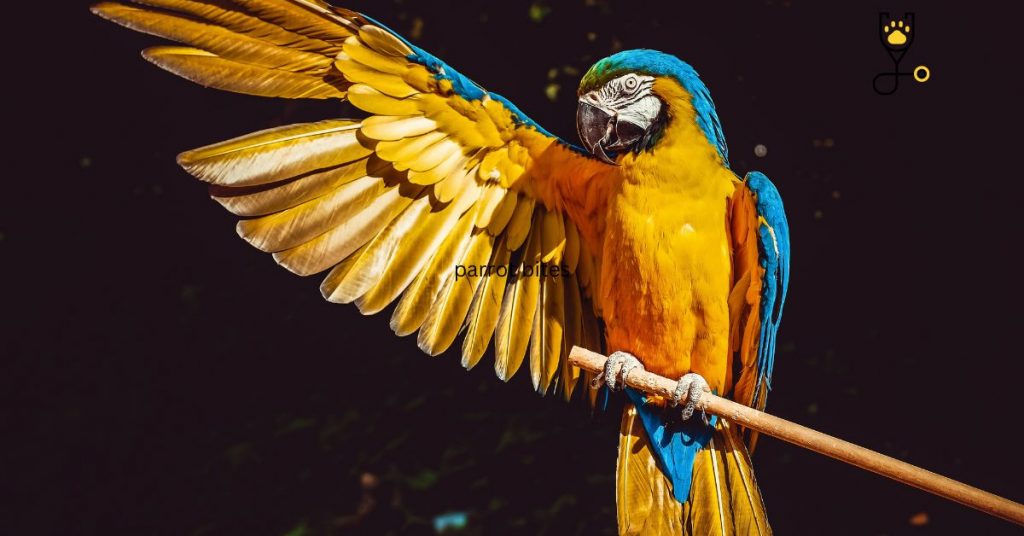
8. Set Up A Bird-Proof Room
If you’re still having trouble controlling your parrot’s aggressive tendencies, try setting up a bird-proof room where she can stay when you’re not directly supervising her. This will give her space to explore without putting herself or anyone else in danger.
9. Stick To A Routine
Parrots thrive on routine and consistency; establish a regular schedule for feeding, playing and other activities so your bird knows what to expect each day. This will help keep her stress levels in check and prevent any outbursts of aggression.
10. Keep Your Parrot Occupied
When you’re not able to directly supervise your parrot, make sure she has something to do that will keep her mind occupied and stimulate her natural curiosity. Consider providing new toys or changing the layout of her cage from time to time so she doesn’t get bored easily.
11. Don’t Overstimulate Your Parrot
It’s important to remember that too much stimulation can lead to aggressive behavior as well. Make sure you don’t overwhelm your bird with excessive noise, movement or people. Give her plenty of time to rest and recover between activities.
12. Monitor Your Parrot’s Health
A parrot’s aggressive behavior can sometimes be a sign of underlying medical issues, so it’s important to keep an eye on your bird’s health. Make sure she has regular check-ups with a qualified avian veterinarian and speak up right away if you notice any changes in her behavior or physical condition.
13. Be Patient
It takes time to train a parrot, so don’t expect results overnight. Remain patient and consistent with your approach, and eventually, you should see a positive change in her behavior. Remember that your bird is an individual with a unique personality—so it’s important to adjust your training methods accordingly.
14. Learn to Recognize Your Parrot’s Triggers
The best way to stop your parrot from biting is to identify and avoid any triggers that might lead to aggressive behavior. Pay attention to the situations in which your bird tends to become agitated or upset, and try to create a safe environment that keeps her away from these potential stressors.
15. Make Time For Regular Bonding Sessions
One of the most important ways to prevent aggression in parrots is by regularly bonding with them. Spend plenty of quality time with your bird every day—talking, playing and providing physical affection—so she feels secure and loved. This will help build trust between you and foster a stronger connection over time.
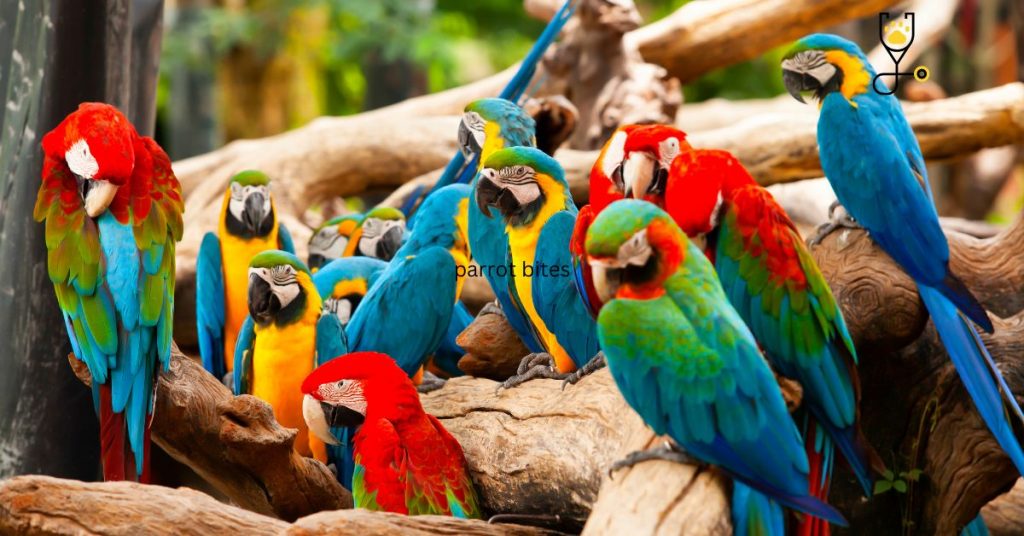
Conclusion
Owning a parrot can be a rewarding experience, but managing their aggressive behavior isn’t always easy. With patience and dedication, however, you can teach your bird to become more relaxed and friendly. Whether it’s through positive reinforcement or by avoiding certain triggers, the key is to find what works best for your individual pet. With enough love and care, your parrot will learn how to channel her energy in constructive ways instead of being destructive.
Frequently Asked Questions
A: If your parrot bites you, remain calm and move away from the situation. Do not try to punish your bird or yank her away—this will only cause more distress and may lead to aggression in the future. Instead, use positive reinforcement methods such as providing treats when she’s acting calmly. This will help reinforce good behavior instead of punishing bad behavior.
A: To prevent your parrot from chewing on furniture, it’s important to provide plenty of toys and other items that are safe for them to chew on such as wooden blocks or shreddable paper. You should also keep furniture away from their cage or provide a cover for it, so they don’t have access to it. Finally, make sure you’re supervising your parrot when they are out of their cage and intervene if they start to chew on something other than their toys.
A: To stop your parrot from getting aggressive, make sure you give them plenty of attention and provide positive reinforcement when they display good behavior. Avoid situations that may cause stress or fear, such as loud noises or crowds of people.
A: If your parrot is constantly screaming, it could be a sign of boredom or distress. Make sure you provide ample amounts of mental stimulation and physical activity for your bird, such as offering toys or taking her outside in an enclosed area to explore.
A: Training your parrot should occur on a daily basis, and sessions should typically last for about 10 to 15 minutes. It’s important to keep the sessions short and fun, so that your bird does not become frustrated or overwhelmed. Additionally, you should incorporate positive reinforcement into your training, such as providing treats or verbal praise when your bird successfully completes a task.

